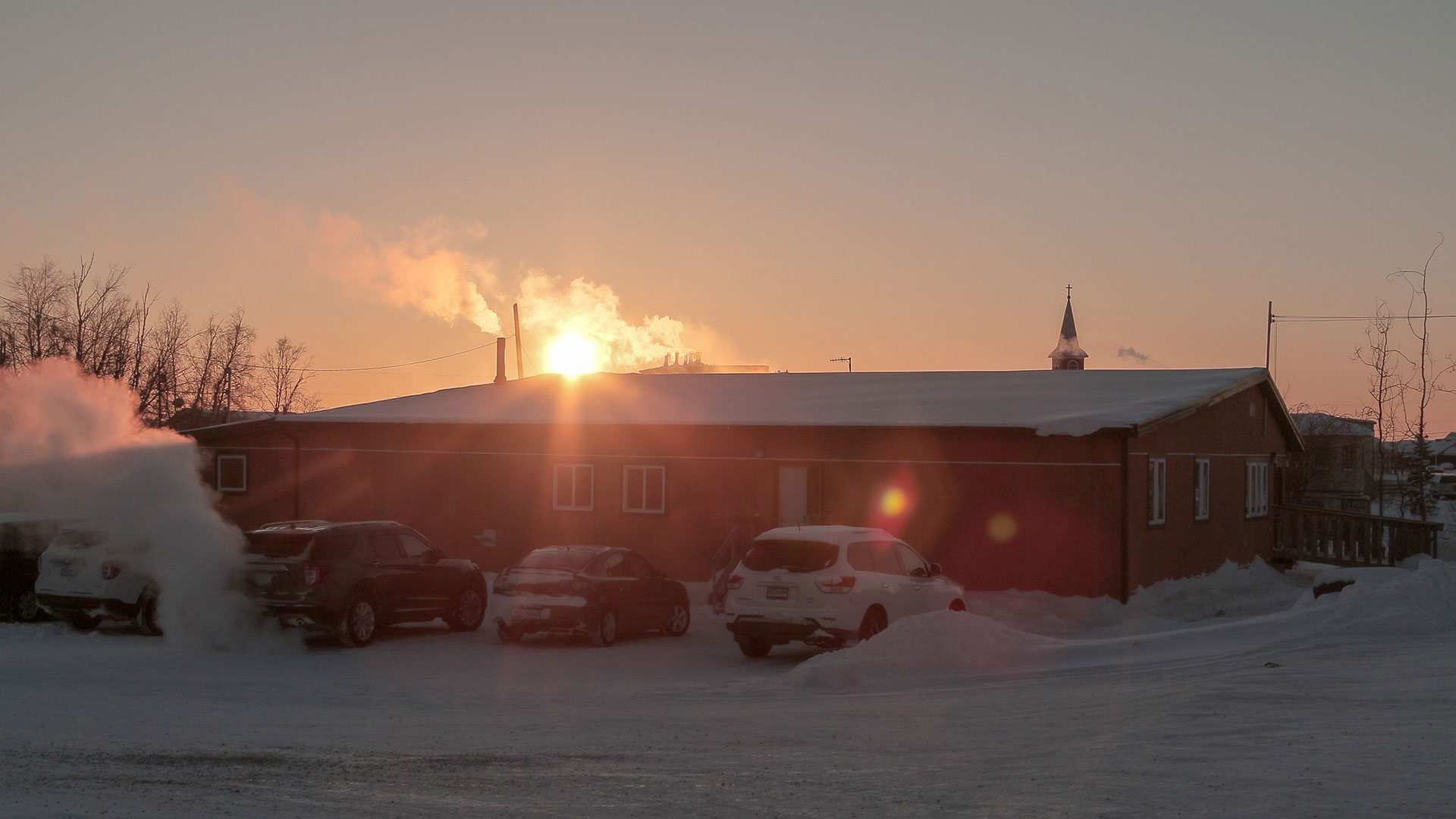Terri Naskan has been working to end family violence since the 1970s.
“At the time the status of women went around to all of the communities, educating and pushing for the laws to change, it took ten years, but it finally did,” Naskan said.
A respected Elder and knowledge holder from Behchokǫ̀, Northwest Territories, she’s working with the Tłįchǫ Łeàgı̨ą Ts’ı̨ı̨lı̨ Kǫ – Tłįchǫ Friendship Centre providing insight on how community members can address intimate partner violence.
“An obstacle we see is some people are married 25 years you can’t just charge them [abuser] and throw them in jail, because they have family and maybe just the father is employed and providing for family,” she said.
The N.W.T. has some of the highest rates of police-reported family violence in the country according to Statistics Canada, ranking second-highest overall between 2017 and 2018, second only to Nunavut.
There’s no women’s shelter in the Behchokǫ̀ region. Families escaping violence must board a plane or travel by winter road before making the hour-long drive from the hub Behchokǫ̀.
“If something very drastic happened and they want to leave tomorrow it’s not going to happen. The process of getting everything done it’s very difficult,” Naskan said.
From January 25-27 the friendship centre delivered an intervention workshop to a dozen community members focused on using narrative therapy and restorative approaches to addressing intimate partner violence.
Trainees learned the ins and outs of talk therapy which takes individuals and communities through identifying their values and drawing out their traditional knowledge and skills for living those values while dismantling gender ideas that may have impacted their relationships.
Participants were then educated on the restorative approach that focuses on assisting abusers in repairing harm in relationships without creating more harm.
Joe Pintarics, executive director of the friendship centre was instrumental in the operation of a similar program, called “A New Day,” held by the Healing Drum Society in the mid-2000s in Yellowknife.
“How did people live and how did people pray before contact,” Pintarics asked. “Much like Residential School, people are retriggered every time they have to leave their community for services, to receive medical or go to treatment.”

Naskan, pointed out how traditionally Elders were the ones who knew the proper community protocols to prevent, monitor and intervene in family violence.
“They [Elders] were the ones that used to keep the peace and find ways to deal with any violence or any thing that’s not right. They are the ones that makes the decisions,” Naskan said.
The recent training has sparked a conversation on how to put Elders back in charge.
“The Elders and disrespected the elders are abused and done all kinds of horrible things to and we have to find a way to put the elders back where they belong,” Pintarics told APTN News.
Naskan agrees that many Elders feel powerless from imposed Western colonial practices.
“A lot of their roles and responsibilities were taken over by social services, running the family programs and to work with the family,” she said.
Much like Naskan’s work in the 1970s the friendship centre is focusing on the education of community members.
Harriet Paul is a participant in the discussions and attended the recent training.
She’s putting what she learns here into good use, sharing information about family violence and Elder Abuse through her weekday radio show on the friendship centre’s station.
“We’re taking it back, Tłįchǫ nahjo – Tłįchǫ way of life,” Harriet said. “There are a couple of counsellors who have been there for so long and they know what to do, what to say and how to help people.”
The friendship centre plans to take input from discussions groups with Elders like Nasklan and share it with the territorial justice department for future programming.










